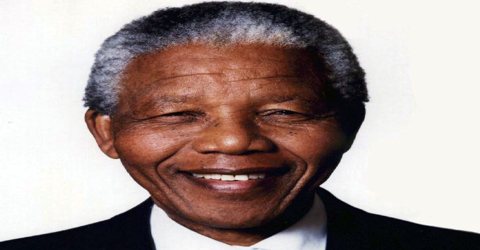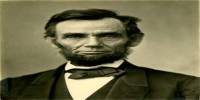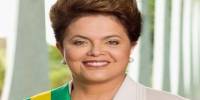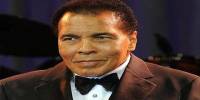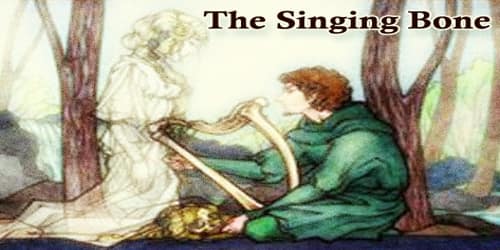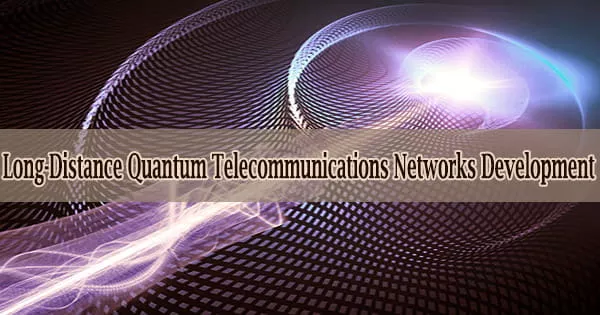Nelson Mandela – 1st President of South Africa
Full name: Nelson Rolihlahla Mandela
Date of birth: 18 July 1918
Place of birth: Mvezo, Cape Province, Union of South Africa
Date of death: 5 December 2013 (aged 95)
Place of death: Johannesburg, Gauteng, South Africa
Resting place: Mandela Graveyard Qunu, Eastern Cape
Occupation: Activist Politician Philanthropist Lawyer
Religion: Methodist
Political party: African National Congress
Other political affiliations: South African Communist Party
Father: Nosekeni Fanny
Mother: Gadla Henry Mphakanyiswa
Spouse: Graça Machel (m. 1998–2013), Winnie Mandela (m. 1958–1996), Evelyn Mase (m. 1944–1958)
Children: 6 (including Makgatho, Makaziwe, Zenani and Zindziswa)
Early Life
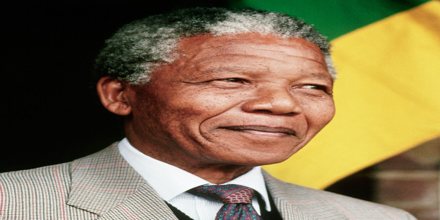
Nelson Mandela, in full Nelson Rolihlahla Mandela, byname Madiba was born on July 18, 1918, in Mvezo, South Africa. He was a black nationalist and the first black president of South Africa (1994–99). His negotiations in the early 1990s with South African Pres. F.W. de Klerk helped end the country’s apartheid system of racial segregation and ushered in a peaceful transition to majority rule. Mandela and de Klerk were jointly awarded the Nobel Prize for Peace in 1993 for their efforts.
Mandela served 27 years in prison, initially on Robben Island, and later in Pollsmoor Prison and Victor Verster Prison. Amid growing domestic and international pressure, and with fears of a racial civil war, President F. W. de Klerk released him in 1990. Mandela and de Klerk negotiated an end to apartheid and organised the 1994 multiracial general election in which Mandela led the ANC to victory and became President. Leading a broad coalition government which promulgated a new constitution, Mandela emphasised reconciliation between the country’s racial groups and created the Truth and Reconciliation Commission to investigate past human rights abuses. Economically, Mandela’s administration retained its predecessor’s liberal framework despite his own socialist beliefs, also introducing measures to encourage land reform, combat poverty, and expand healthcare services. Internationally, he acted as mediator in the Pan Am Flight 103 bombing trial and served as Secretary-General of the Non-Aligned Movement from 1998 to 1999. He declined a second presidential term and in 1999 was succeeded by his deputy, Thabo Mbeki. Mandela became an elder statesman and focused on combating poverty and HIV/AIDS through the charitable Nelson Mandela Foundation.
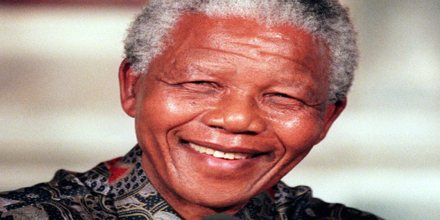
He was a controversial figure for much of his life. Although critics on the right denounced him as a communist terrorist and those on the radical left deemed him too eager to negotiate and reconcile with apartheid’s supporters, he gained international acclaim for his activism. He is held in deep respect within South Africa, where he is often referred to by his Xhosa clan name, Madiba, and described as the “Father of the Nation”. He was died on December 5, 2013, in Johannesburg.
Childhood and Educational Life
Nelson Mandela was born Rolihlahla Mandela on July 18, 1918, in the tiny village of Mvezo, on the banks of the Mbashe River in Transkei, South Africa. “Rolihlahla” in the Xhosa language literally means “pulling the branch of a tree,” but more commonly translates as “troublemaker.”
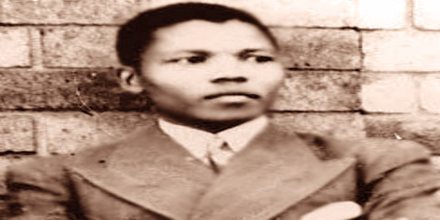
His father, who was destined to be a chief, served as a counselor to tribal chiefs for several years, but lost both his title and fortune over a dispute with the local colonial magistrate. Mandela was only an infant at the time, and his father’s loss of status forced his mother to move the family to Qunu, an even smaller village north of Mvezo. The family lived in huts and ate a local harvest of maize, sorghum, pumpkin and beans, which was all they could afford. Water came from springs and streams and cooking was done outdoors. Mandela played the games of young boys, acting out male rights-of-passage scenarios with toys he made from the natural materials available, including tree branches and clay. His mother sent him to a local Methodist school when he was about seven. Baptised a Methodist, Mandela was given the English forename of “Nelson” by his teacher. When Mandela was about nine, his father came to stay at Qunu, where he died of an undiagnosed ailment which Mandela believed to be lung disease. Feeling “cut adrift”, he later said that he inherited his father’s “proud rebelliousness” and “stubborn sense of fairness”.
He attended a Methodist mission school located next to the palace, where he studied English, Xhosa, history and geography. He developed a love of African history, listening to the tales told by elderly visitors to the palace, and was influenced by the anti-imperialist rhetoric of a visiting chief, Joyi. At the time he nevertheless considered the European colonialists not as oppressors but as benefactors who had brought education and other benefits to southern Africa. Aged 16, he, Justice and several other boys travelled to Tyhalarha to undergo the circumcision ritual that symbolically marked their transition from boys to men; afterwards he was given the name Dalibunga.
In 1933 Mandela began his secondary education at Clarkebury Methodist High School, Engcobo, a Western-style institution that was the largest school for black Africans in Thembuland. He completed his Junior Certificate in two years, and in 1937 moved to Healdtown, the Methodist college in Fort Beaufort attended by most Thembu royalty, including Justice. With Jongintaba’s backing, in 1939 Mandela began work on a BA degree at the University of Fort Hare, an elite black institution in Alice, Eastern Cape, with around 150 students. There he studied English, anthropology, politics, native administration, and Roman Dutch law in his first year, desiring to become an interpreter or clerk in the Native Affairs Department. He took up ballroom dancing, performed in a drama society play about Abraham Lincoln, and gave Bible classes in the local community as part of the Student Christian Association. Although he had friends connected to the African National Congress (ANC) and the anti-imperialist movement who wanted South Africa to be independent of the British Empire, Mandela avoided any involvement with the movement, and became a vocal supporter of the British war effort when the Second World War broke out. He helped to found a first-year students’ house committee which challenged the dominance of the second-years, and at the end of his first year became involved in a Students’ Representative Council (SRC) boycott against the quality of food, for which he was temporarily suspended from the university; he never returned to complete his degree.
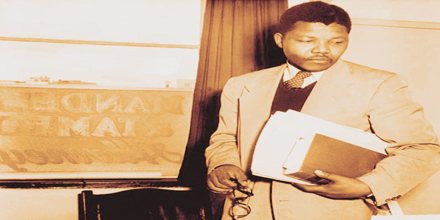
He studied law at the University of Fort Hare and the University of the Witwatersrand before working as a lawyer in Johannesburg.
Personal Life
Mandela was married three times, beginning with Evelyn Ntoko Mase (m. 1944-1957). The couple had four children together: Madiba Thembekile, Makgatho (d. 2005), Makaziwe and Maki. Mandela wed Winnie Madikizela in 1958; the couple had two daughters together, Zenani and Zindziswa, before splitting in 1996. Two years later, Mandela married Graca Machel, with whom he remained until his death in 2013.
Working and Political Career
During his time at University, Nelson Mandela became increasingly aware of the racial inequality and injustice faced by non-white people. In 1943, he decided to join the ANC and actively take part in the struggle against apartheid.
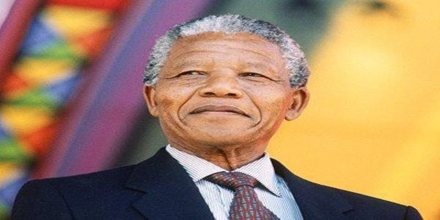
As one of the few qualified lawyers, Nelson Mandela was in great demand; also his commitment to the cause saw him promoted through the ranks of the ANC. In 1956, Nelson Mandela, along with several other members of the ANC were arrested and charged with treason. After a lengthy and protracted court case the defendants were finally acquitted in 1961. However, with the ANC now banned, Nelson Mandela suggested an active armed resistance to the apartheid regime. This led to the formation of Umkhonto we Sizwe, which would act as a guerilla resistance movement. Receiving training in other African countries, the Umkhonto we Sizwe took part in active sabotage.
In 1963, Mandela was again arrested and put on trial for treason. This time the State succeeded in convicting Mandela of plotting to overthrow the government. However, the case received considerable international attention and the apartheid regime of South Africa became under the glare of the international community. At the end of his trial, Nelson Mandela made a long speech, in which he was able to affirm his commitment to the ideals of democracy.
Nelson Mandela was incarcerated on Robben Island for 18 of his 27 years in prison. During this time, he contracted tuberculosis and, as a black political prisoner, received the lowest level of treatment from prison workers. However, while incarcerated, Mandela was able to earn a Bachelor of Law degree through a University of London correspondence program.
A 1981 memoir by South African intelligence agent Gordon Winter described a plot by the South African government to arrange for Mandela’s escape so as to shoot him during the recapture; the plot was foiled by British intelligence. Mandela continued to be such a potent symbol of black resistance that a coordinated international campaign for his release was launched, and this international groundswell of support exemplified the power and esteem that Mandela had in the global political community.
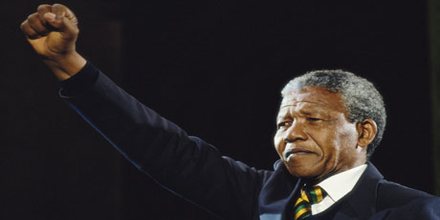
During his time in prison, Mandela became increasingly well known throughout the world. Mandela became the best known black leader and opposition to the apartheid regime. Largely unbeknown to Mandela, his continued imprisonment led to world wide pressure for his release. Many countries implemented sanctions on apartheid South Africa. Due to international pressure, from the mid 1980s, the apartheid regime increasingly began to negotiate with the ANC and Nelson Mandela in particular. On many occasions, Mandela was offered a conditional freedom. However, he always refused to put the political ideals of the ANC above his own freedom.
Eventually Nelson Mandela was released on February 11, 1990. The day was a huge event for South Africa and the world. His release symbolic of the impending end of apartheid. Following his release there followed protracted negotiations, (often interspersed with tribal violence). However, in April 1994, South Africa had its first full and fair elections. The ANC, with 65% of the vote, were elected and Nelson Mandela became the first President of the new South Africa.
From 1994 until June 1999, Mandela worked to bring about the transition from minority rule and apartheid to black majority rule. He used the nation’s enthusiasm for sports as a pivot point to promote reconciliation between whites and blacks, encouraging black South Africans to support the once-hated national rugby team. In 1995, South Africa came to the world stage by hosting the Rugby World Cup, which brought further recognition and prestige to the young republic.
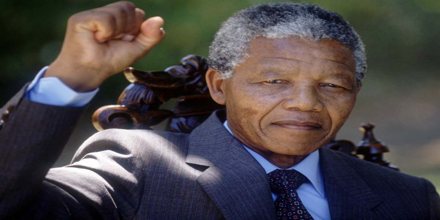
Mandela also worked to protect South Africa’s economy from collapse during his presidency. Through his Reconstruction and Development Plan, the South African government funded the creation of jobs, housing and basic health care. In 1996, Mandela signed into law a new constitution for the nation, establishing a strong central government based on majority rule, and guaranteeing both the rights of minorities and the freedom of expression.
Retirement and Later Life
Nelson Mandela retired from the Presidency in 1999, to be succeeded by Thabo Mbeki. In his later years, ill health curtailed his public life. However, he did speak out on certain issues.
Mandela was diagnosed and treated for prostate cancer in 2001. In June 2004, at the age of 85, he announced his formal retirement from public life and returned to his native village of Qunu.
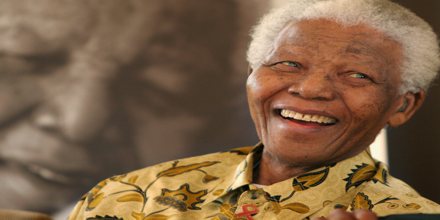
On July 18, 2007, Mandela convened a group of world leaders, including Graca Machel (whom Mandela wed in 1998), Desmond Tutu, Kofi Annan, Ela Bhatt, Gro Harlem Brundtland, Jimmy Carter, Li Zhaoxing, Mary Robinson and Muhammad Yunus, to address some of the world’s toughest issues. Aiming to work both publicly and privately to find solutions to problems around the globe, the group was aptly named “The Elders.” The Elders’ impact has spanned Asia, the Middle East and Africa, and their actions have included promoting peace and women’s equality, demanding an end to atrocities, and supporting initiatives to address humanitarian crises and promote democracy.
In addition to advocating for peace and equality on both a national and global scale, in his later years, Mandela remained committed to the fight against AIDS—a disease that killed Mandela’s son, Makgatho, in 2005.
Nelson Mandela made his last public appearance at the final match of the World Cup in South Africa in 2010. He remained largely out of the spotlight in his later years, choosing to spend much of his time in his childhood community of Qunu, south of Johannesburg. He did, however, visit with U.S. first lady Michelle Obama, wife of President Barack Obama, during her trip to South Africa in 2011.
Death and Legacy
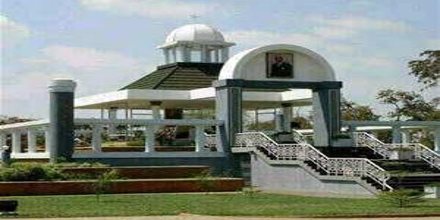
In February 2011, Mandela was briefly hospitalised with a respiratory infection, attracting international attention, before being re-admitted for a lung infection and gallstone removal in December 2012. After a successful medical procedure in early March 2013, his lung infection recurred and he was briefly hospitalised in Pretoria. In June 2013, his lung infection worsened and he was readmitted to a Pretoria hospital in serious condition.
On December 5, 2013, at the age of 95, Nelson Mandela died at his home in Johannesburg, South Africa. Zuma released a statement later that day, in which he spoke to Mandela’s legacy: “Wherever we are in the country, wherever we are in the world, let us reaffirm his vision of a society … in which none is exploited, oppressed or dispossessed by another,” he said. For decades to come, Nelson Mandela will continue to be a source of inspiration for civil rights activists worldwide.
In 2009, Mandela’s birthday (July 18) was declared Mandela Day, an international day to promote global peace and celebrate the South African leader’s legacy. According to the Nelson Mandela Centre of Memory, the annual event is meant to encourage citizens worldwide to give back the way that Mandela has throughout his lifetime. A statement on the Nelson Mandela Centre of Memory’s website reads: “Mr. Mandela gave 67 years of his life fighting for the rights of humanity. All we are asking is that everyone gives 67 minutes of their time, whether it’s supporting your chosen charity or serving your local community.”
Awards and Honours
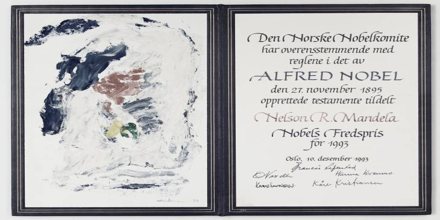
1942 – Bachelor of Arts degree, University of South Africa
1960s
- 1964 – Elected Honorary President of the Students’ Union, University of Leeds
1970s
- 1973 – A nuclear particle discovered by scientists at the University of Leeds is named the “Mandela particle”.
- 1975 – Honorary life membership of the Students’ Union, University of London
- 1979 – Awarded Honorary Doctorate of Law, University of Lesotho, Maseru, 29 September
- 1979 – Jawaharlal Nehru Award for International Understanding, by the Indian Council for Cultural Relations New Delhi, India
1981
- August – Freedom of the City of Glasgow
- The first UK road named in his honor – “Mandela Close” – is unveiled in the London Borough of Brent
- Bruno Kreisky Award for merit in the field of human rights, chosen by a panel of international judges, Vienna, Austria
1982
- Elected Honorary Life President of the Students’ Union at the London School of Economics and Political Science
1983
- Honorary citizenship of Rome, February.
- Honorary citizenship of Olympia, Greece, 17 March
- Ornamental gardens in Hull, United Kingdom, named ‘Nelson Mandela Gardens’, May
- Honorary Doctorate of Laws. City College of New York, 5 June
- City Council of Dublin, Ireland, unveiled sculpture in Merrion Square by Elisabeth Frink dedicated to Nelson Mandela, 26 June
- Award of the order Star of International Friendship in gold by the German Democratic Republic, 18 July
- City Council of Harlow, United Kingdom, renamed one of its major roads in honour of Nelson Mandela, 18 July
- AUEW/TASS, one of United Kingdom’s major trade unions, renamed their executive committee room the ‘Nelson Mandela Room’, 18 July
- Freedom of London Borough of Greenwich, 20 July
- UNESCO awards its first Simon Bolivar International Prize jointly to Nelson Mandela and King Juan Carlos of Spain at a ceremony in Caracas, Venezuela, on the 200th anniversary of the birth of Simón Bolívar, 24 July
- City Council of Leeds, United Kingdom, names the Civic Hall ‘Nelson Mandela Gardens’, 10 December
- Honorary Doctorate of Laws, Lancaster University, United Kingdom
- The Students Unions of Warwick University, Coventry Polytechnic (now Coventry University) and South Bank Polytechnic (now London South Bank University) named rooms in honour of Nelson Mandela
- New York City renamed square in front of South African mission to the United Nations ‘Nelson and Winnie Mandela Plaza’
1984
- Honorary Degree, Free University of Brussels, 13 January
- London Borough of Camden Council, names the street where the Anti-Apartheid Movement has its headquarters as ‘Mandela Street’.
- London Borough of Hackney Council, renames a housing block after Nelson Mandela, April
- Order of Playa Girón, Cuba, awarded by Fidel Castro
- Honorary membership of National Association of Local Government Officers (NALGO) United Kingdom
- London Borough of Haringey Council, names housing development after Nelson Mandela
- Monument to Nelson Mandela unveiled in Merrion Square, Dublin
- Elected Honorary Member of the Students Association, University of Strathclyde, Scotland
- Freedom of the City of Wijnegem, Belgium
- Awarded Star of International Friendship, German Democratic Republic, 27 August
- Freedom of the City of Aberdeen conferred on both Nelson and Winnie Mandela, 29 November
- School in German Democratic Republic named ‘Nelson Mandela School’
- Room at Edinburgh city chambers named in his honour
1985
- Revenue Staff Federation, United Kingdom, names its Commonwealth trade union scholarship after Nelson Mandela
- London Borough of Southwark names new road ‘Mandela Way’
- Nottingham City Council names a room in a sports centre
- The Third World Prize, awarded annually by the London-based Third World Foundation for Social and Economic Studies, awarded jointly to Nelson and Winnie Mandela
- Awarded freedom of the City of Hull, United Kingdom.
- Awarded Degree of Doctor of Laws by the University of Strathclyde, Glasgow, 3 July 1985
- Freeman of Midlothian, Scotland (accepted during his October 1993 visit)
- Awarded the Ludovic-Trarieux International Human Rights Prize by Human Rights Institute of The Bar of Bordeaux, Bordeaux, France, 29 March
- Nigerian writers organisation, Writers and Journalists Against Apartheid (WAJAAP), confers title of Life Patron
- Town of Huddersfield in West Yorkshire, United Kingdom, renames its speakers’ corner Nelson Mandela Corner, September
- Freedom of the City of Rio de Janeiro, Brazil, October
- Honorary citizenship of the State of Rio de Janeiro, Brazil, October
- Diploma of Honour and Friendship from the University of Rio de Janeiro, Brazil, October
- Statue of Nelson Mandela erected in London by Greater London Council, unveiled by Oliver Tambo on 28 October
- Senegal’s President Abdou Diouf inaugurates Soweto Square and Nelson Mandela Avenue in the centre of Dakar, Senegal, 6 December
- Awarded Doctor of Laws degree by Ahmadu Bello University in Nigeria, December
1986
- Elected Honorary Life President of the National Union of Mineworkers of South Africa
- Awarded the W.E.B. DuBois International Medal by the National Association for the Advancement of Colored People (NAACP)
- Coventry City Council named new building after Mandela
- Presented with the Alfonso Comin Foundation Peace Award in Barcelona, Spain
- Freedom of the Borough of Islwyn, Wales, given to Winnie and Nelson Mandela
- International Peace and Freedom Award by the Workers International Centre, Stockholm Sweden
- Honorary Doctor of Literature, University of Calcutta
- Awarded, with Winnie Mandela, the Third World Prize by the Strategic and International Studies Group of Malaysia, 5 May
- Honorary Doctorate of Laws, University of Zimbabwe
- Nelson Mandela Park in Leicester, England, named after Mandela
- Honorary membership awarded to Winnie and Nelson Mandela by the National Union of Seamen, United Kingdom
- St George’s Place in Glasgow, Scotland, the location of the South African consulate is renamed Nelson Mandela Place.
- Awarded the Cross of St. Andrew by Scotland.
- Made Honorary Freeman of Newcastle
1987
- First person to receive the Freedom of the City of Sydney, Australia, 9 January.
- Honorary Degrees, Winnie and Nelson Mandela, United States Ross University School of Medicine in the Caribbean
- Named Patron of Isipingo and District Football Association, Natal
- Honorary Degree, University of Michigan, USA
- Honorary Degree. University of Havana, Cuba
- Honorary Citizen, City of Florence, Italy
- Honorary Doctor of Laws, Trent University, Canada
- Honorary Doctorate, Karl Marx University of the German Democratic Republic, Leipzig, 11 November
- Dutch football player Ruud Gullit dedicates his European Footballer of the Year award to Nelson Mandela
1988
- Park in Montreal named “Parc Winnie-et-Nelson-Mandela” (Winnie’s name removed in 1998)
- Awarded Bremen Solidarity Prize, Federal Republic of Germany
- Nelson and Winnie Mandela given honorary membership of the National Union of Teachers, United Kingdom
- Awarded freedom of the City of Dublin, Ireland
- Awarded the Sakharov Prize for Freedom of Thought, by the European Parliament
- Honorary Doctorate conferred, University of Carabobo, Venezuela, June
- Awarded honorary degree from Western Michigan University from then-president Diether Haenicke, June
- People of Lefkada, Greece, award the Medal of Peace, August
- Honorary citizenship conferred by nine Greek municipalities Egaleo, Ellenikon, Glyfada, Ilioupolis, Daissariani, New Filadelfia, Nikaea, Preveza and Zogrofu
- Honorary degree in Political Science awarded by the University of Bologna, Italy, 12 September
- Honorary citizenship bestowed by the Town Council of the city of Bologna, Italy, September
- Awarded the United Nations Human Rights Fourth Award, 10 December
- Nelson Mandela Road named, New Delhi, India, 10 December
- Bachelor of Laws degree, University of South Africa
1989
- Augusto César Sandino Award bestowed by Daniel Ortega, President of Nicaragua, Managua, 21 February
- Freedom of the Municipality of Kwekwe, Zimbabwe. Award received on his behalf by Oliver Tambo
- Awarded Peace Prize of the Tipperary Peace Committee, Ireland
- Nuremberg Platz renamed ‘Nelson Mandela Platz’, Nuremberg, Germany, June
- Honorary Doctorate of Laws, York University, Toronto, Canada, 16 June
- Square in Clayes-sous-Bois, France, named ‘Nelson Mandela Square’, September
1990
- Made Honorary Life President of National Union of Mineworkers when he addressed its Central Committee, 21 April
- Granted freedom of the City of Harare, Zimbabwe, March
- ‘Mandela Day’, a public holiday declared in Zimbabwe on 5 March
- Awarded the Lenin Peace Prize for 1990, May. The last-ever recipient.
- Bestowed the Dr António Agostinho Neto Order, the highest honour of the People’s Republic of Angola, 12 May
- Bestowed the award ‘Grand Commander of the Federal Republic of Nigeria’, Lagos, 14 May
- Awarded the Al-Gaddafi International Prize for Human Rights in Tripoli, Libya, 19 or 20 May
- Honorary degree in political science by the Cairo University, Egypt, May
- Bestowed Bharat Ratna, India’s highest civilian award, October
- Doctorate, honoris causa, conferred by University of Malaya, November
- Honorary Doctorate in law, University of the Western Cape, Bellville, Cape Town, 28 November
- Honorary Doctor of Laws, University of Cape Town
1991
- Honorary LL.D Degree conferred, University of the Witwatersrand, Johannesburg, 6 September
- Awarded Carter-Menil Human Rights Prize, 8 December
- Awarded Félix Houphouët-Boigny Peace Prize by UNESCO
- Honorary Doctorate of Humane Letters from Texas Southern University in 1991.
1992
- Installed as Chancellor of the University of the North (now called University of Limpopo), 25 April
- Honorary LL.D Degree conferred by the University of Fort Hare, 9 May
- Honorary Doctorate conferred at the Cheikh Anta Diop University of Dakar, Senegal, 30 June
- Presented with the Freedom of Miami Beach Medallion of Honour, Johannesburg, 29 September
- Pakistan conferred the Nishan-e-Pakistan, 3 October
- Prince of Asturias Award for International Cooperation, Oviedo, Spain, 31 October
- Received the “Spirit of Liberty” award at the “People for the American Way” award ceremony, 8 November
- Received the Isitwalandwe Medal from the ANC.
- Awarded the Atatürk International Peace Prize by Turkey, but refused the award citing human rights violations committed by Turkey during that time, which was the denial of the existing of more than 20 million Kurds in Turkey
1993
- Received Gleitsman Foundation International Activist Award, Johannesburg, 12 May
- Received Philadelphia Liberty Medal. Presented by President of the United States Bill Clinton, Philadelphia, USA, 4 July
- Honorary Degree conferred, Clark Atlanta University, 10 July
- Received Order of Brilliant Star with Special Grand Cordon, Taipei,Taiwan, 31 July
- Honorary Doctorate of Laws, Soochow University, Taiwan, 1 August
- Received Apostolic Humanitarian Award, Johannesburg, 15 September
- Awarded J. William Fulbright Prize for International Understanding, Washington, DC, 1 October
- Received Honorary Degree from the Free University of Brussels, Belgium, 8 October
- Awarded Nobel Peace Prize Oslo, Norway, 10 December
- Named Person of the Year by Time magazine, together with F. W. de Klerk, Yasser Arafat and Yitzhak Rabin.
1994
- Received the New Nation/Engen Man of the Year Flame of Distinction award, 24 March
- Elected Newsmaker of the Year, with Deputy President F W de Klerk, by the Johannesburg Press Club, 25 May. Prof Kader Asmal received the award on 29 September
- Received the Hunger Project’s 8th annual Africa Prize for Leadership for the Sustainable End of Hunger, London, 19 July
- Received Anne Frank medal for human rights and tolerance, Johannesburg, 15 August
- Received Sheikh Yusuf Peace Award from the Muslim Women’s Federation, 10 September
- Received the Arthur A Houghton Star Crystal Award for Excellence from the African-American Institute, 6 October
- Received Bishop John T. Walker Distinguished Humanitarian Service Award from Africare, 6 October
- Honorary Doctorate, Howard University, 7 October
- Received freedom of the town of Tongaat, KwaZulu-Natal, 21 October (initially granted in 1989)
- Received the Olympic Gold Order from International Olympic Committee president, Juan Antonio Samaranch, Cape Town, 16 November
- Received Man of the Year Award from the Greek Chamber of Commerce and Industries of Southern Africa, Johannesburg, 19 November 1994
- Received the Grand’Croix degree of the National Order of the Legion of Honour of France, Paris, 28 December
- Honorary Doctorate awarded by University of South Africa
- Awarded the “Commonwealth Champion of Health” medal, received by South African athletes at the Commonwealth Games, Canada
1995
- Africa Peace Award – sponsored jointly by the African Centre for the Constructive Resolution of Disputes (ACCORD) and the Organisation of African Unity (OAU) – presented at a ceremony in Durban, March
- Appointed an honorary member of the Order of Merit by Queen Elizabeth II
- ‘Nelson Mandela Road’ to Katse, Lesotho, inaugurated, 13 July
- Received Pretoria Press Club’s 1994 Newsmaker of the Year Award, Pretoria, 20 July
- Granted the Freedom of Uitenhage, 14 September
- Awarded Honorary Fellowship of the College of Medicine of South Africa, Johannesburg, 17 October
- Harvard Business School Statesman of the Year Award, 14 December
- Human Rights Institute, with President Mandela as honorary chairman, launched in London by the International Bar Association, December 1995
1996
- Awarded honorary fellowship of the Royal College of Surgeons in Ireland, Dublin, Ireland
- Indira Gandhi Award for International Justice and Harmony bestowed. Award received by Justice Minister Dullah Omar in New Delhi, India, January
- Received the World Citizenship Award of the World Association of Girl Guides and Girl Scouts
- U Thant Peace Award bestowed by Sri Chinmoy, 29 January
- Created Knight of the Order of the Elephant by the Danish Queen Margrethe II, Copenhagen, 18 February. By tradition of the order, the Knight’s coat of arms is drawn on a plate and it is hung in the chapel of Frederiksborg Castle. If one hasn’t a coat of arms (as was the case for Mandela), the Court heraldist composes one, with the Knight’s cooperation.
- Awarded the National Order of Mali (Grande Croix), Mali’s highest decoration, Bamako, 3 March
- Received the Freedom of the City of London, London, 10 July
- Received the Degree of Doctor of Civil Law by Diploma of the University of Oxford and honorary degrees from the Universities of Cambridge (LLD), London (London School of Economics), Bristol, Nottingham, and Warwick (LLD) and from De Montfort and Glasgow Caledonian Universities in the garden of Buckingham Palace, 10 July A photograph of the event is available on the Glasgow Caledonian University Archives website
- Received Honorary Doctorate from Pantheon-Sorbonne University, Paris, 15 July
- Received Honorary Doctorate from Stellenbosch University, 25 October
- Received the Freedom of Heidelberg, Heidelberg, 29 November
- Awarded The Battle of Adwa and the Victory of Adwa Centenary Medal by the Crown Council of Ethiopia in 1996
- Awarded The Ahimsa Award by the Institute of Jainology, for his Gandhian principles of non-violence in Independence
1997
- Mandela Family Museum opens in Soweto, 29 November
- Awarded Honorary Degree by the University of the Philippines, Manila, 2 March
- Created Knight of the Royal Order of the Seraphim, Stockholm, 3 February. By tradition of the order, the Knight’s coat of arms is drawn on a plate and it is kept in the Hall of the Order of the Seraphim at the Royal Palace of Stockholm. If one hasn’t a coat of arms, the Court heraldist composes one, with the Knight’s cooperation. In this case, the Danish coat of arms was used as a starting point. By tradition, on the day of his funeral (15 December 2013), it will be hung in Riddarholmen Church and the church bells will ring constantly from 12:00 to 13:00 as a tribute.
- Received Freedom of the City of Pietermaritzburg, 25 April
- Received Freedom of the City of Bloemfontein, 16 May
- Baker Avenue in Central Harare, Zimbabwe, Renamed Nelson Mandela Avenue, 19 May
- Received Freedom of Boksburg, 26 June
- Received Freedom of Oxford, United Kingdom, 11 July
- Awarded Honorary Doctorate from Chulalongkorn University, Bangkok, Thailand, 17 July
- Awarded Honorary Doctorate by Ben-Gurion University of the Negev, Cape Town, 19 September
- Received the American Public Health Association Presidential Citation, Pretoria, 14 October
- Awarded the Collar of the Nile by President Hosni Mubarak of Egypt, Cairo, 21 October
- Received Freedom of City of Edinburgh, Scotland, 27 October
- Received Freedom of City of Cape Town, 27 November
- Received Honorary Degree from the University of Pretoria, Pretoria, 4 December
- Multi-purpose room at Binghamton University renamed Nelson Mandela’s Room
- The National Stadium in Kampala, Uganda is named Mandela National Stadium, opened in 1997 with a concert by Lucky Dube.
1998
- Received Honorary Doctoral Degree from the University of South Australia, University of Fort Hare, 23 April
- Awarded Honorary Doctorate, University of Zululand, 30 May
- Awarded the Freedom of the City and County of Cardiff, Cardiff, 16 June
- Awarded the Chris Hani Award at the 10th National Congress of the South African Communist Party, Johannesburg, 1 July
- Awarded Honorary Degree by the University of Mauritius, 11 September
- Park in Montreal named again “Parc Nelson-Mandela”, 14 September
- Awarded Honorary Doctorate by Harvard University, Cambridge, Massachusetts, 18 September
- Awarded Congressional Gold Medal, Washington, 23 September
- Appointed Honorary Companion of the Order of Canada by the Governor General of Canada on behalf of the Queen of Canada, 24 September.
- Nelson Mandela public school named in his honour in Toronto.
- Presented with Award in Recognition of his Contribution to Democracy, Human Rights and Freedom by the Supreme Council of Sport in Africa, 19 November
- Created a Knight Grand Cross of the Royal Norwegian Order of St Olav by the King of Norway.
1999
- Received the Deutscher Medienpreis, Baden-Baden, Germany, 28 January
- Awarded the Oneness-Peace Earth-Summit-Transcendence-Fragrance Award, Pretoria, 9 March
- Received the Golden Medal of the City of Amsterdam, Netherlands, 10 March
- Received honorary doctorate from Leiden University, Netherlands, 12 March
- Awarded the Freedom of the City of Durban, Durban, 16 April
- Received Honorary Doctorate from the Russian Academy of Sciences, Moscow, 30 April
- Received Ukraine’s Highest Decoration, the First Class of the Order of Prince Yaroslav the Wise, Cape Town, 5 May
- Received Jesse Owens Global Award, Johannesburg, 21 September
- Received insignia of Honour from the African Renaissance Institute, Johannesburg, 11 October
- Received an Honorary Doctorate of Laws from the University of Botswana, Gaborone, 14 October
- Received the Baker Institute Enron Prize for Distinguished Public Service at Rice University, Houston, 26 October
- Awarded the Freedom of the City of Lydenburg, Lydenburg, 3 November
- Appointed Honorary Companion of the Order of Australia, Canberra, 9 June; presented with the insignia by Australian Prime Minister John Howard in Pretoria on 15 November.
- Was among 18 included in Gallup’s List of Widely Admired People of the 20th Century, from a poll conducted of the American people in December 1999.
- Presented with Temple of Understanding Annual Award to Religious and Political Leaders for Outstanding Service to Humanity, Cape Town, 5 December
- Presented with the Gandhi-King Award by the World Movement for Nonviolence at the World Parliament of Religions, Cape Town, 5 December
- Listed as one of the 100 most influential people of the 20th century by Time magazine
- Created Knight of the Dutch/Luxembourgian Order of the Gold Lion of the House of Nassau, Netherlands, 10 March
2000
- Honorary Juris Doctor degree from the Faculty of Law at Uppsala University, Sweden, 22 January
- The Nelson Mandela National Museum is officially opened in Soweto, 11 February
- Awarded honorary Doctorate of Laws by Trinity College, Dublin, 11 April
- Appointed honorary Queen’s Counsel by Queen Elizabeth II, 3 May
- Awarded SABS Gold Medal, Sandton, 10 June
- BT Ethnic Multicultural Media Award, London, 29 June
- Received World Methodist Peace Award, London, 29 June
- International Freedom Award, Memphis, Tennessee, 22 November
- Elected an Honorary Member of the Bertrand Russell Society, autumn
- Awarded Honorary Doctorate of Law from the University of Technology, Sydney, Australia
- Awarded Honorary Doctor of Letters from the Australian National University, 6 September
2001
- International Gandhi Peace Prize, Presidential Palace, New Delhi, 16 March
- Made an Honorary Freeman of Leeds, 30 April
- Made an Honorary Fellow of Magdalene College, Cambridge, 2 May
- Awarded the first King Shaka Award in recognition of bravery, 25 July 2001
- Park Public School renamed Mandela Park Public School, Toronto, Canada, 17 November
- Received honorary doctorate of law from Ryerson University, Toronto, Canada, 17 November
- Granted Honorary Citizenship of Canada, 19 November
- Awarded the LLD Honoris Cause from the University of the Free State
- Awarded the D Tech Education Honoris Cause from the Technikon Free State
- Human Rights Lifetime Achievement award by the SA Human Rights Commission, Johannesburg, 11 December
- Made an Honorary Administrator For A Day at Binghamton University
2002
- Awarded an Honorary Doctorate in Law from University of Hong Kong, Hong Kong, Hong Kong, 21 March
- Awarded an Honorary Doctorate in Law from Rhodes University, Grahamstown, South Africa, 6 April
- New hall of residence at Rhodes University, Grahamstown, South Africa named ‘Nelson Mandela Hall’
- Awarded an Honorary Doctorate by the University of Ghana, 24 April
- Awarded the Franklin Delano Roosevelt Freedom Medal, Middelburg, The Netherlands, 8 June.
- Awarded the Presidential Medal of Freedom, the United States’ highest civilian award, by George W. Bush, Washington, USA, 9 July
- Awarded the Queen Elizabeth II Golden Jubilee Medal from Canada.
- Awarded the Order of Mapungubwe – Platinum Category by President Thabo Mbeki, Union Buildings, Pretoria, December 2002.
- Construction begins on the Mandela Parkway in Oakland, California, built after 1989’s Loma Prieta earthquake demolished the Cypress Street Viaduct portion of the Nimitz Freeway.
2003
- Awarded an Honorary Doctorate in Law by the National University of Ireland, Galway, 20 June
- Elected an Honorary Life member of the Literary and Debating Society, NUI, Galway.
- Named a Hero of Freedom by the libertarian magazine Reason
- Awarded Honorary Doctorate Degree – Doctor of Letters (Honoris causa) by The Open University of Tanzania
- British Red Cross Humanity Medal
2004
- Sandton Square in Johannesburg, South Africa is renamed Nelson Mandela Square on 31 March with the unveiling of a 6-metre bronze statue.
- Listed as one of the 100 most influential people of 2004 by Time magazine
- Appointed Bailiff Grand Cross of the Most Venerable Order of St John of Jerusalem
- Africa Elephant Award by the Africa Scout Region
- Zoologists Brent E. Hendrixson and Jason E. Bond named a South African species of trapdoor spider in the family Ctenizidae as Stasimopus mandelai, “honouring Nelson Mandela, the former president of South Africa and one of the great moral leaders of our time.”
- Presented with the Honorary Degree of Doctor of Laws from Open University. The award was presented to him at his home in Cape Town by Professor Brenda Gourley The Open University’s Vice-Chancellor (2002–2008) and former Vice-Chancellor of the University of Natal.
2005
- Amherst College honorary degree.
- Listed as one of the 100 most influential people of 2005 by Time magazine
2006
- New Statesman – Listed as the number 2 in the 50 “Heroes of our time”.
- Awarded Amnesty International’s Ambassador of Conscience Award
- Made an honorary member of Manchester United as the club toured South Africa in the winter of 2006
- Conferred an honorary doctorate in government and politics by Universiti Teknologi Mara, the biggest public university in Malaysia, in recognition of his tireless efforts and triumph in struggling for the people’s rights in his country and strengthening their socio-economy.
- Awarded the Giuseppe Motta Medal for support for peace and democracy.
- 6 July 2006 Included in ‘Names on the Wall’ monument to freedom fighters at Oriel Chambers, the home of the Wilberforce Institute for the study of Slavery and Emancipation, Hull, UK
- South African Red Cross Society Humanitarian Award
- Conferred an honorary Doctorate of Humane Letters from the University of Massachusetts
- Awarded Ahimsa Award from the Institute of Jainology, UK
2007
- The Westminster City Council agreed to erect a statue of Mandela opposite the Houses of Parliament in London.
- Honorary citizen of Belgrade, Serbia. “for his huge humanitarian past and contributions to mankind”.
- Received the Order of the Smile, Poland, 26 October.
2008
- In January 2008, the Europe-based A Different View cited Mandela as one of the 15 Champions of World Democracy. Other champions mentioned were Lech Wałęsa, Corazon Aquino, and Václav Havel.
- Michigan State University LLD honoris causa.
- Order of Stara Planina First Class, awarded by Bulgaria (12 June 2008)
- Received an Honorary Doctorate from Queen’s University Belfast on 1 July 2008
2009
- In July 2009, Mandela received the Arthur Ashe Courage Award presented by Venus and Serena Williams. Accepting on his behalf were his daughter and grandson.
- In November 2009, the United Nations General Assembly announced that Mandela’s birthday, 18 July, is to be known as “Mandela Day” marking his contribution to world freedom.
2010
- Received Honorary Degree from Queen’s University, Kingston, Ontario, 28 October.
- Conferred an Honorary Doctorate Degree by six universities in the Laureate International Universities network.
- Conferred an Honorary Doctor of Laws Degree by Brown University in Providence, Rhode Island, United States.
- Received Orden del Águila Azteca. Presented by President of México Felipe Calderón, Johannesburg, South Africa, 11 June 2010.
2012
- Received The BrandLaureate Hall of Fame-Lifetime Achievement Award from the Asia Pacific Brands Foundation (APBF)
- Received the Canadian version of the Queen Elizabeth II Diamond Jubilee Medal
2013
- On 10 December 2013, the amphitheatre of the Union Buildings in Pretoria was renamed the Nelson Mandela Amphitheatre.
- On 16 December 2013, a 9 metre high bronze statue of Mandela was unveiled at the Union Buildings in Pretoria.
2014
- A plaque will be dedicated in Monument Park at Yankee Stadium to commemorate his 1990 visit.
2015
- Nelson Mandela was posthumously inducted into the World Rugby Hall of Fame.
